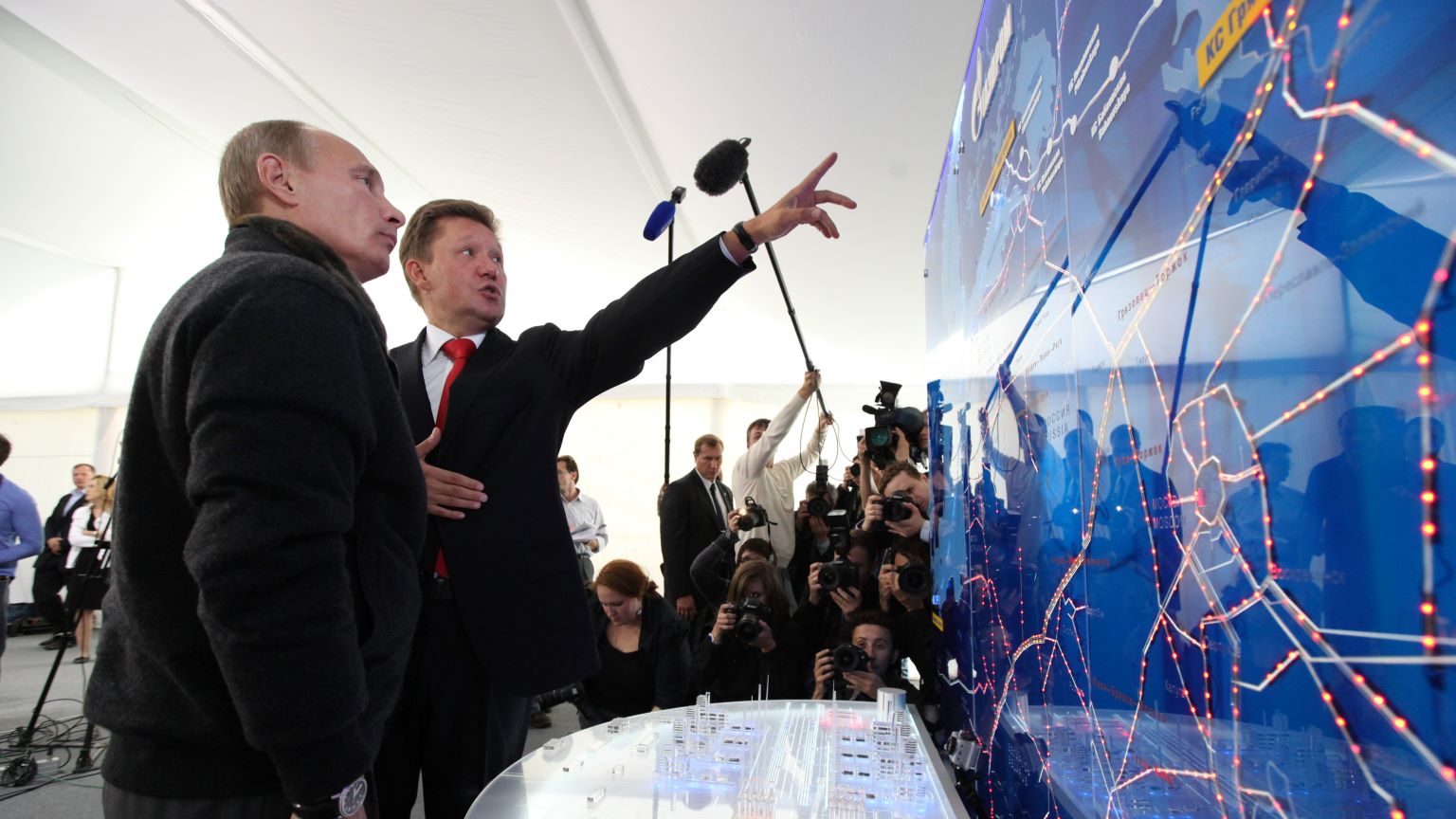If you have a 401(k), you’re an investor. Geopolitics will affect your financial security

- In the 1990s, globalization became the new world religion.
- Today, globalization is reversing, and we are entering into a “multipolar” world, in which the U.S. is no longer the single, dominant power.
- Geopolitics is about to become much more volatile. We must plan our financial investments accordingly.
It seems like just yesterday that Francis Fukuyama, writing in the pages of the summer 1989 edition of The National Interest, declared the end of history. In Fukuyama’s words, the end of the Cold War represented “the end point of mankind’s ideological evolution and the universalization of Western liberal democracy as the final form of human government.” Freed from a bipolar contest for global supremacy, the U.S. and its liberal allies dove into the 1990s full of optimism, hope, and capital to spend. Geopolitics, at long last, was dead. Globalization was the new world religion; the Washington Consensus was its 10 commandments — and the U.S. was its enforcer. Thou shalt liberalize thy trade!
As it turns out, global hegemony pays dividends. Between November 26, 1990, and December 13, 2019, the S&P 500 grew by over 900%. (For some frame of reference, the Nikkei 225 grew 1% over the same period, despite Japan being the world’s second largest economy and ubiquitous predictions it would supplant the U.S.) The U.S. dollar retrenched itself as the world’s reserve currency, accounting for over 59% of global currency reserves as of Q3 2021. As of January 2022, U.S. equity markets remain the deepest and most liquid in the world, accounting for 42 percent of the world’s $125 trillion global equity market capitalization. For global investors, the best decision you could have made in 1990 was sit back, relax, and park your money in the S&P 500.
Simpler times
It is not hyperbole to assert that for the last 30 years, getting geopolitics right was easy. That isn’t to say there weren’t any challenges. The 1990s featured genocide in the Balkans and East Africa. The early 2000s witnessed an angry Islamist reaction to Western liberal values, resulting in wars that cost the U.S. over $2 trillion — not counting the interest the U.S. will eventually have to pay. In 2008, Russia invaded Georgia. The 2010s brought the rise of ISIS, Brexit, and the U.S.-China trade war. Through it all, someone forgot to tell regimes in North Korea, Cuba, Venezuela, and Iran that they were supposed to become liberal democracies. For investors, this era also featured the dot-com bubble and the 2008 subprime mortgage crisis — the bursting of tech and real estate bubbles in the global hegemon.
By and large, however, investors needed only one geopolitical insight to succeed during this era: “The U.S. is the most powerful country in the world.” Despite the occasional market hiccup, betting on the U.S. was the best performing long-term bet. As a result, investors and companies were suddenly liberated from worrying about geopolitical risk; things that kept them up at night pre-1990 suddenly did not matter. Investors could instead focus on valuations, interest rates, earnings, and narratives about how life is going to be even better in the multiverse. Companies no longer had to worry about complex supply chains crisscrossing an ideologically divided world: China was the world’s factory — outsource there, pad corporate margins, and call it a day. Geopolitical muscle memory slowly atrophied in its obsolescence.
Our new multipolar world is geopolitically volatile
The next 30 years will not be nearly as kind or as simple. Even before the COVID pandemic, the world was becoming a more “multipolar” place. “Multipolar” is a wonky policy term that means there is no longer a single, dominant power in international politics. Before 1990, the world was not, strictly speaking, multipolar. The Cold War was a global conflict between two great powers: the U.S. and the Soviet Union. One has to go back to before World War I to find a proper historical analogue. The 1890s — which the French christened La Belle Époque — was also a time of rising and falling great powers, incredible cultural and artistic effervescence, a global energy revolution, and a complete change in the way the world did business.
Russia’s invasion of Ukraine is an example of how multipolar geopolitical environments are particularly volatile. But it is easy to lose sight of the fact that the era before World War I was one of tremendous economic opportunity. Standard Oil was founded in 1870, ushering in a new and violent era of global energy. Practically overnight, Japan evolved from an internally divided and technologically unsophisticated backwater to a Pacific Empire and global economic powerhouse. The rising power of the 1890s was Germany, ready to challenge the incumbent United Kingdom. Despite the two countries being on a collision course, the aggregate value of German-British foreign trade increased by 204% between 1888 and 1912. This was a world where geopolitics mattered — and offered those that understood it a significant comparative advantage.
Money-making opportunities outside the U.S.
Going forward, the global investment opportunity set outside the U.S. is much better than the opportunity within the U.S. There are five times as many individual stocks outside the U.S. than in it, generating almost double as much revenue. Even with U.S. valuations stretched thin, there is more market cap outside U.S. equity markets ($56 trillion) than in it ($49 trillion). The U.S. makes up one-quarter of global GDP, despite accounting for just 4.2 percent of the global population. In addition, just 22% of the U.S. population is younger than 18 years old. Population growth in the future will come from sub-Saharan Africa, South Asia, and Latin America, and the countries that take off should grow faster than previous developing market miracles, like Japan, South Korea, and China. Most importantly: the U.S. is no longer calling all the shots. Countries like India, China, Turkey, and even the European Union will pursue their own interests in their own ways — whether Washington approves or not.
Case-in-point: over the last eight years, there has been a 70-percentage point return gap between the best- and worst-performing country ETFs. Multipolarity is creating winners and losers, and there is alpha to be had in being long or short in the right countries. This divergence will only widen as globalization continues to recede, and Western-style cultural, political, and social norms are displaced by a renewed emphasis on what is local and what is reliable.
Finance must consider geopolitics
To be sure, all the traditional tools of investment analysis still matter. Geopolitics is not a magic 8-ball. It is an intellectual framework and a practice that generates the necessary strategic insight to create alpha (that is, a strategy to “beat the market”). Going forward, making investment decisions in a multipolar world without geopolitics is akin to flying blind in a storm. As Marko Papic wrote in his recent book Geopolitical Alpha: “Getting the market right, from here on out, is as much about geopolitics as it is about valuations.” Geopolitics by itself is not sufficient, but to make the best possible investment decisions in a deglobalizing, multipolar, energy paradigm-shifting world, it is indispensable.





